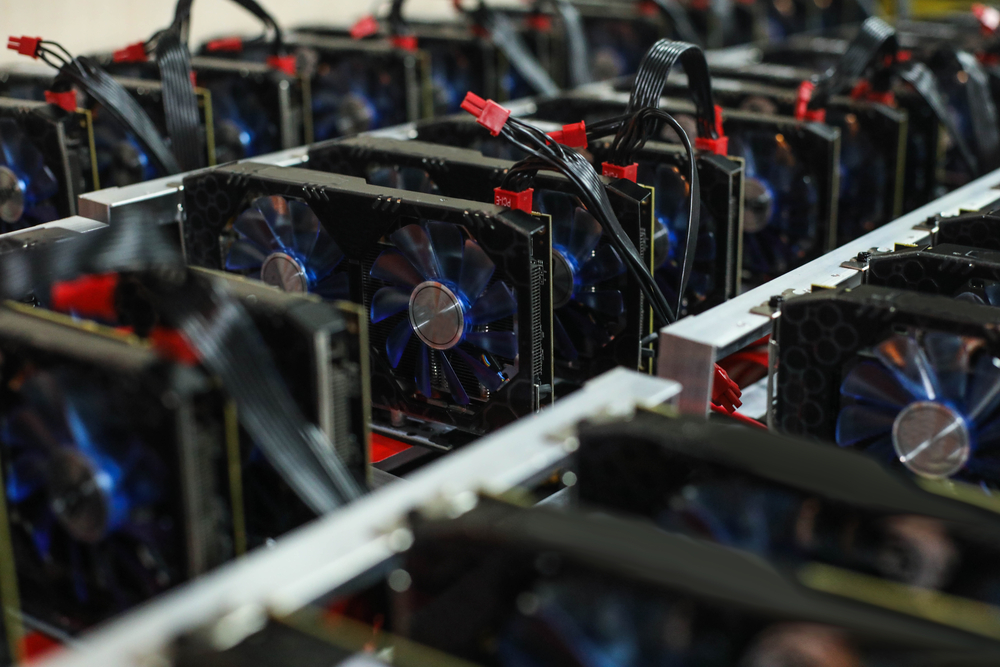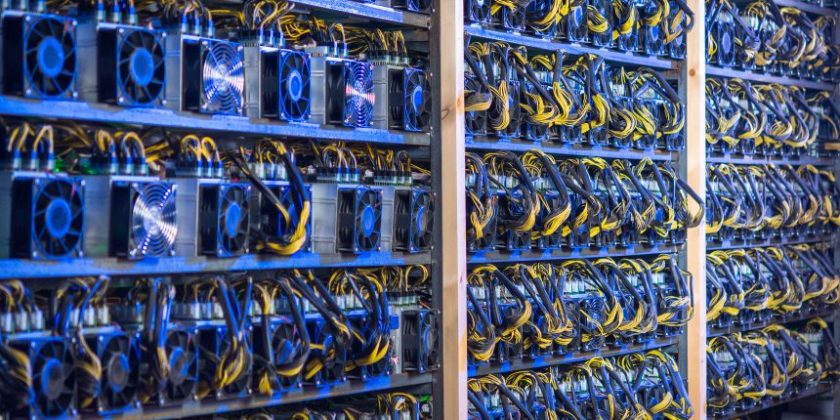
How to mine bitcoin?
Mining bitcoins is a relatively straightforward process. If you don’t wish to delve into the details or learn how to optimally configure your bitcoin mining hardware, you can easily just download bitcoin mining software, start it up on your computer, and you’re already mining bitcoin. You could even start mining a few Satoshi before finishing this read.
Where do bitcoins come from?
Before starting your mining operation, you might want to learn a little bit about where bitcoins come from. The full answer to this question is a little abstract, so let’s break it down. Every time a transaction is made between two bitcoin addresses, it is broadcast throughout the network. Bitcoin mining computers running specialized software see these transactions and collectively add them to the current ‘block’ of transactions, while also collecting a miner’s fee contained in each transaction. This is the first incentive for bitcoin miners. The second incentive comes from mining the blocks. For every block of bitcoin transactions generated, miners compete to solve a very ‘difficult’ math problem. The winner of this competition is awarded some newly minted bitcoins. About every 4 years, the number of bitcoinsgenerated in this way is halved.As you can see in the chart below, the total number of bitcoins approaches about 21 million bitcoins and will never exceed that number.
In addition, the difficulty of solving each block increases over time which place a significant constraint on the supply of bitcoin. In this design, inflation is kept at bay while miners continually are incentivized to run their machines on the network. And with all that said, we can safely move on the details of how to mine your own bitcoins.
A few concerns for bitcoin miners
The main concerns for bitcoin miners are energy consumption and hash rate, where both play a crucial role in the profitability of bitcoin mining. If you are able to balance the two such that your ramping energy costs don’t overtake the bitcoins you earn through mining then your operation will be successful.
The hardware that miners use has evolved over the years from using small form factor PCs with certain model graphics cards, to specially engineered bitcoin mining rigs touted for their hash rates and energy efficiency. The later are optimally configured and easy to setup for bitcoin mining. However, for the novice bitcoin miner, it was profitable for many years to simply run one or a small cluster of bitcoin mining machines out of your home but those days have come to end for the most part. As the difficulty of computing the hashes for mining has increased and the rewards for mining have diminished, it has become much less profitable and in most cases unprofitable to run mining hardware from your home. Energy costs cripple novice miners, while those in countries with heavily subsidized electricity can enjoy sustained profits and successfully run large scale bitcoin mining operations. Be sure to take these costs into account when deciding if you want to start mining bitcoin.
Bitcoin mining hardware

Odds are your PC already has the necessary hardware to run as a bitcoin miner and to setup your PC for bitcoin mining should ultimately be a snap, albeit not with any speed when compared with modern purpose built bitcoin miners. Just as Intel and AMD are making faster processers each year, bitcoin miners have evolved from their humble days as just running using the power of your graphics card to current day Application-specific integrated circuit (ASIC) miners which boast up to a few terahashes per second. If you are just trying bitcoin mining out of curiosity, then there is no need to buy any additional hardware. If you are serious about it, however, then there will be some significant initial investment to be made to get your operation started. ASIC miners range from $200 to $1000 or more per unit, and to reach a hashrate that is profitable you will need to invest in many machines. A single ASIC miner is more of a curiosity than anything as the return per month can range from 0.2 bitcoins on the low end and 0.4 bitcoins or more on the high end. This calculates to a range of about $35 per month to $100 per month, before accounting for energy costs. So, just from some initial calculation you can see that the limiting factor on making a profit from mining is definitely your energy bill. The ideal setup for bitcoin mining will ultimately be such that you are able to pay off your initial investment in hardware and monthly energy bill in a reasonable amount of time. No one wants to wait years for an investment to pay off if it even will, so taking these costs into consideration is a must.
Popular hardware for bitcoin mining is primarily focused in a handful of brands. BITMAIN makes the very popular AntMiner, which is a very efficient ASIC miner and usually sells out of units quickly. Top of the line AntMiner machines can churn out more than 12 terahashes per second put come at a cost of more than $1,500 brand new. Avalon is also another popular miner, but comes at higher price on average.If you are sourcing hardware while on the cheap it may be worth your while to buy used hardware. As mentioned earlier, profitability has diminished and along with that the hardware that was once top of the line has come down in price as it is surpassed by newer units and is less profitable due to the rising difficulty of mining.
Bitcoin mining pools and cloud mining

One sure-fire way to get a consistent return on mining, and one strategy for mining that has grown in popularity to be how the majority of bitcoins are mined, is bitcoin mining pools. Just as with a lottery, pooling together resources ensures that should one ticket in the pool win, everyone will win, and the winnings can be distributed accordingly. Some popular mining pools are the likes of BTCC, Slush Pool, Antpool, F2Pool, whose combined hash rate is a whopping 77% of the total hash rate of the network. If you wish to join a mining pool, make sure you do sufficient research and compare mining pools, as there are a variety of payout methods which will ultimately determine how much profit you can make.To setup your bitcoin miner for a mining pool, follow the instructions given on your chosen mining pool’s website. The same process goes for configuring your bitcoin miner if it is an ASIC miner.
Another route for prospective bitcoin miners might be to try cloud mining. These services allow users to buy contracts at a price per gigahash rate. In essence what these services offer is renting out of bitcoin miners to users without users ever having to touch any hardware. There is some skepticism around cloud mining, and some practices have been shown to operate like a Ponzi scheme, so anyone looking to invest in cloud mining should be wary and do research before investing.
Bitcoinmining software
For starters, make sure that your computer is fully up to date with the latest state of the bitcoin network. The easiest way to do this is to download Bitcoin Core and let it complete its discovery of the full blockchain. This will ensure your computer is in agreement with the current state of the bitcoin network and avoid any conflicts. If you are using an ASIC miner, then this job is fully contained within the hardware and you will only need to connect to your miner over your network to configure your bitcoin miner for operation. A few good options out there for PC users are cgminer and bfgminer, which are both free to use.To configure your bitcoin miner for using the software, depending on if you are running a cluster or solo miner, you should only have to set some initial setting and then click the start button and the rest will be taken care of within the software.
